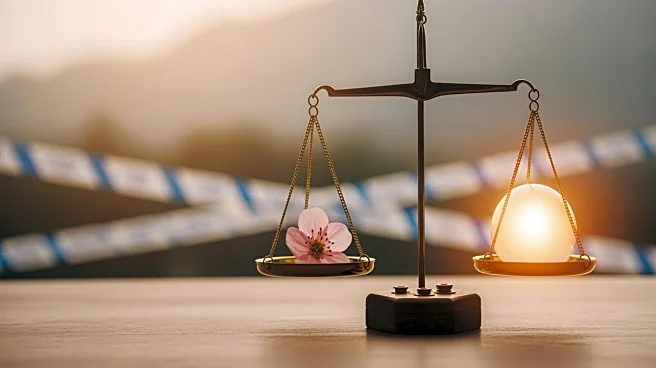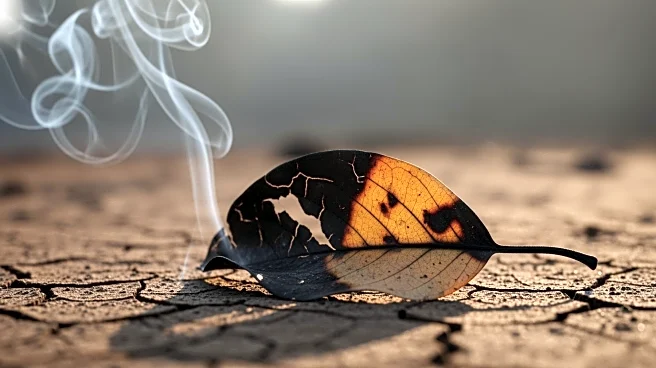What's Happening?
Director Noah Baumbach is set to adapt Andrew Ridker's novel 'Hope' into a television series in collaboration with A24. This marks Baumbach's return to television after more than a decade, following his last TV project in 2012. The novel 'Hope' is set in 2013 and follows the Greenspan family, who are well-regarded in their community of Brookline, Massachusetts. The family faces turmoil when Scott Greenspan, a successful physician, is caught falsifying blood samples, leading to a series of scandals that threaten to unravel their lives. Baumbach's previous work with A24 includes the film 'While We're Young'.
Why It's Important?
Baumbach's move into television signifies a notable shift in his career, expanding his storytelling into a medium that allows for more extended narrative exploration. This adaptation could attract viewers interested in complex family dynamics and moral dilemmas, potentially boosting A24's reputation in the television industry. The collaboration also highlights A24's continued investment in diverse storytelling, following successful series like HBO's 'Euphoria'. The adaptation of 'Hope' may influence future TV projects by encouraging more literary adaptations, offering audiences rich, character-driven stories.
What's Next?
The development of 'Hope' into a TV series will likely involve casting decisions and production planning, with potential announcements regarding the show's release date and platform. Stakeholders such as A24 and Baumbach may face decisions on how to best translate the novel's intricate plot and character arcs into episodic television. The series could prompt discussions on ethical issues within professional fields, as depicted in the novel, and may lead to viewer engagement on social media platforms.
Beyond the Headlines
The adaptation of 'Hope' could spark conversations about the ethical responsibilities of professionals and the impact of personal scandals on family dynamics. It may also explore themes of redemption and personal growth, resonating with audiences facing similar real-world challenges. The series might delve into cultural and societal expectations within affluent communities, providing a critique of the pressures to maintain a facade of perfection.









